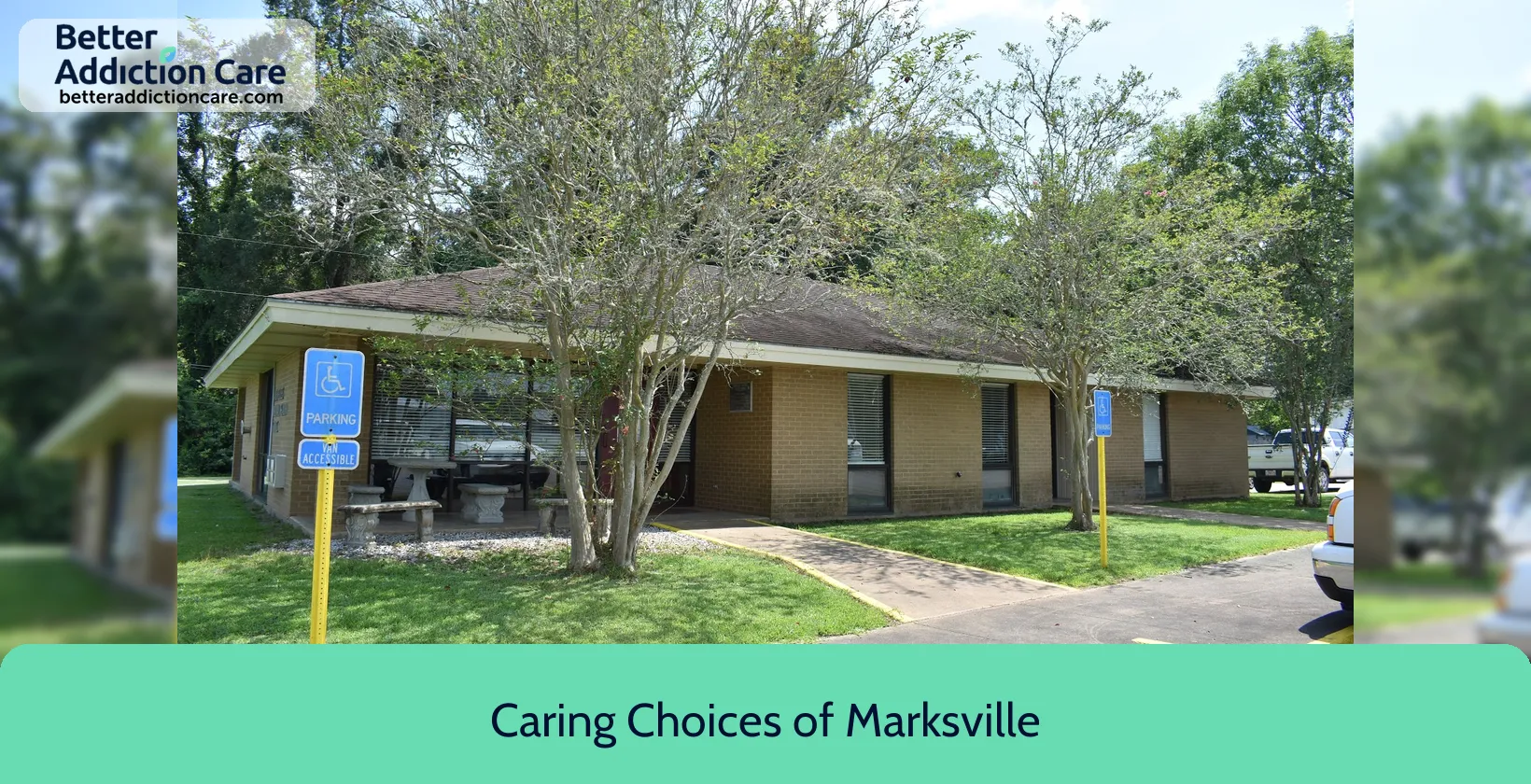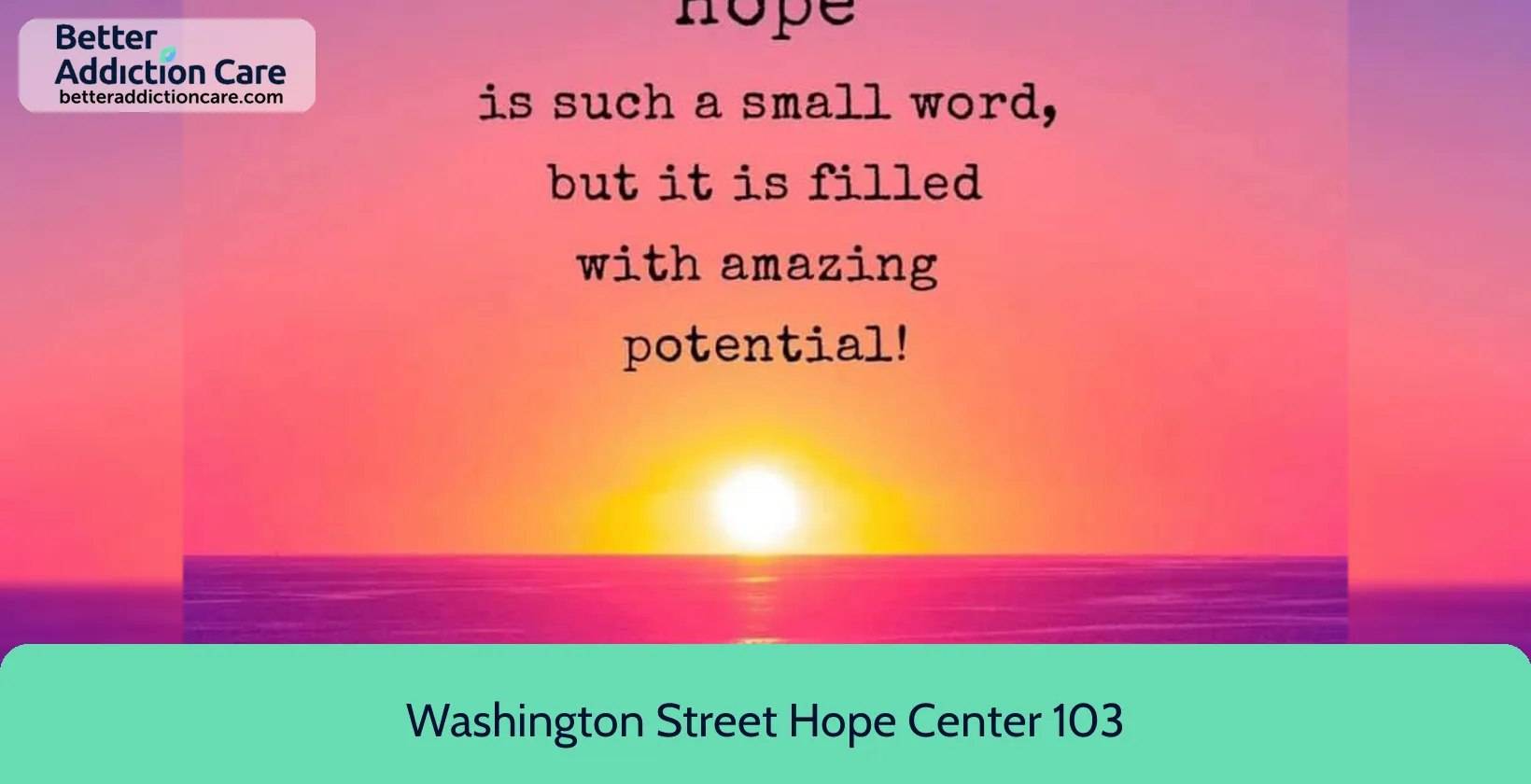Washington Street Hope Center

Overview
The Washington Street Hope Center in Marksville, Louisiana, is a recovery center for drug abuse that helps both men and women. The center is open 24 hours a day, seven days a week, and provides full support to people who are trying to recover from drug use disorders. The facility offers a 28-day inpatient residential program based on the 12 steps of Alcoholics Anonymous. This program gives clients a structured and supportive place to start their recovery path. In addition to its residential program, Washington Street Hope Center also offers outpatient services that include group, individual, and family counseling. These programs are meant to help people stay sober by giving them ongoing support and therapy and by dealing with the problems that led to their addiction.
The center has a license from the Department of Health and Hospitals and is accredited by CARF International. This means that all of its services meet a high level of care and quality.
Washington Street Hope Center at a Glance
Payment Options
- Cash or self-payment
- Medicaid
- State-financed health insurance plan other than Medicaid
- Private health insurance
Assessments
- Screening for tobacco use
- Comprehensive substance use assessment
- Interim services for clients
- Outreach to persons in the community
- Screening for mental disorders
Age Groups
- Young adults
- Adults
Ancillary Services
- Case management service
- Specially designed program for DUI/DWI clients
- Social skills development
Highlights About Washington Street Hope Center
6.77/10
With an overall rating of 6.77/10, this facility has following balanced range of services. Alcohol Rehabilitation: 8.00/10, Drug Rehab and Detox: 6.00/10, Insurance and Payments: 6.00/10, Treatment Options: 7.09/10.-
Alcohol Rehabilitation 8.00
-
Treatment Options 7.09
-
Drug Rehab and Detox 6.00
-
Insurance and Payments 6.00
Accreditations
State mental health department:
State mental health department accreditation refers to the process of evaluating and certifying the quality and standards of a state's mental health department, ensuring that it provides high-quality services and meets specific criteria for mental health care. The accreditation process is performed by a third-party organization and helps to improve the overall care and treatment of individuals with mental health conditions.
State department of health:

Government agencies issue State Licenses, granting rehabilitation organizations permission to operate their businesses lawfully within specific geographic regions. The specific licenses needed for legal operation are typically determined by the type of rehabilitation program offered by the facility and its physical location.
CARF:
CARF accreditation is a prestigious recognition granted to rehabilitation and human service organizations. It signifies that an organization meets high-quality standards, having undergone a rigorous evaluation process. CARF accreditation boosts an organization's credibility and ensures top-notch care for individuals with disabilities, injuries, or healthcare needs.
Treatment At Washington Street Hope Center
Treatment Conditions
- Alcoholism
- Substance use treatment
Care Levels
- Outpatient
- Outpatient day treatment or partial hospitalization
- Intensive outpatient treatment
- Regular outpatient treatment
- Aftercare
Treatment Modalities
- Cognitive behavioral therapy
- Substance use disorder counseling
- Group counseling
- Family counseling
- Marital/couples counseling
Ancillary Services
Languages
- English
Additional Services
- Pharmacotherapies administered during treatment
- Mentoring/peer support
- Breathalyzer or blood alcohol testing
Get Help Now
Common Questions About Washington Street Hope Center
Contact Information
Other Facilities in Marksville

6.65

6.83
Browse rehab centers near Marksville and in other cities across Louisiana
DISCLAIMER: The facility name, logo and brand are the property and registered trademarks of Washington Street Hope Center 103 South Main Street, and are being used for identification and informational purposes only. Use of these names, logos and brands shall not imply endorsement. BetterAddictionCare.com is not affiliated with or sponsored by Washington Street Hope Center 103 South Main Street.
